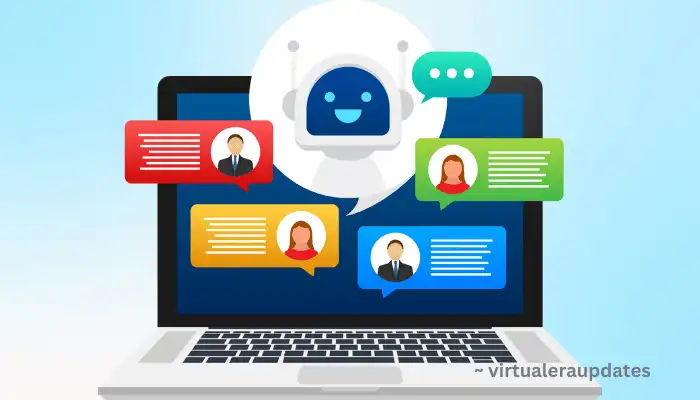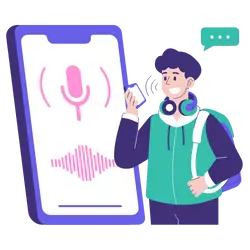How AI and Chatbots Are Transforming Employee Interactions Within Organizations
AI and AI chatbots are changing the HR game by large scale in employee interactions across organizations. Not only is AI helping businesses become more efficient and responsive by being on hand to provide instant HR-queries but also automating other boring, dreary processes too. Read on to learn more about how AI and chatbots are revolutionizing employee communication within companies — and the implications for business.

AI Chatbots for HR Instant Answers and Less Human Intervention (Costcutting) – AI chatbots answer employees queries on benefits information, leave policies, payroll details immediately. This provides an automated process, mitigating the necessity of human intervention and permitting HR professionals to work on strategic issues. This automatically saves valuable time for your staff to customer service while allowing them access to information in a fast and immediate manner, increasing efficiency as desired.
Performance Analysis & Feedback: AI evaluates your employee’s performance indicators and the ROI on his/her work, then gives real-time updates that make it easier for you to advance them in their career or reward those who are doing well. Using performance data, AI can recommend tailor-made training and development programs that aim to upskill the employees for their career progression.
Automation of Mundane tasks AI is automating the mundane HR jobs such as payroll processing, benefits administration and attendance tracking. In turn, it enables HR professionals to focus on higher-value work like door-strategy planning and employee engagement initiatives.
Mental Health Provision: Many companies use AI chatbots to help them with mental health resources, first line assessments and referrals on where to obtain professional assistance if required. This method prevents problems from ever reaching that point in the first place and helps to create a more sustainable working environment with access to assistance for employees.
To learn about how AI is impacting organizational management, we have some excerpts from industry experts:
Vikas Kakkar Founder & CEO of Amara Key Insights This week Myles in ai, takes a look at some of the methods they are having an impact. Vikas sees the role of AI in HR tech industry to be a lot more advanced and evolved, come five years from now. As well as HR efficiencies, these will contribute to decision-making and employee experience through AI. Some of the crucial ones are:
AI-Based Recruitment Tools: The aid in predicting high potential talent and decreasing bias while hiring. AI Chatbots: Ensuring 24/7 employee support to help increase overall engagement and satisfaction. Sophisticated AI Algorithms: Predicting turnover, providing unique development plans based on employee data. NLP (Natural Language Processing): Understanding employee feedback like never before to become faster and more efficient at solving the problems.
The Challenge of AI-Human Balance It is vital for there to be a human interface in interactions with AI. The key, Kakkar says, to balancing advanced AI with this personalized and human-centric approach is that the machine-learning algorithms are trained on data containing those layers of sentiment analysis. Moreover, transparency in AI operations: employees should be told when they are interacting with an AI vs a human as this helps build trust and understanding.
Employee Engagement Next Most Important Trends The future of employee engagement is the next important these are:
PERSONALISED EMPLOYEE EXPERIENCE – Utilise AI and Data Analytics to custom-craft employees programs, awards or initiatives based on individual preferences. Continuous learning: Traditional annual reviews are out; real-time check-ins, progress assessment, and regular feedback is in. Remote and Hybrid Work Models– Redesign engagement strategies to allow for flexible work arrangements, virtual team building activities and digital collaboration tools. Employee Well-Being: Making mental and physical health initiatives the most important, providing you with good work-life balance support, creating a thriving workplace.
Recognise At-Risk Employees AI chatbots play a key role in identifying employees who are at risk of disengagement or attrition. Chatbots can understand sentiments and gather concerns by engaging with employees at critical touchpoints throughout their employee lifecycle, capturing reasons for disengagement. As chatbots communicate with employees on a continuous basis, they can identify high risk elements or require HRs to intervene immediately if help is needed & thus talent can be retained.
Begin Your Transformation with Two Leadership Strategies for Tech Startups The successful creation of a tech startup comes from the right combination of vision, skills and energy. Kakkar points out the important key leadership strategies to tackle challenges, and expand production in a competitive market are:
Clear Vision & Modern: Laying down clear vision souls purpose that comes after pro acting – rather re noting. Customer Driven: Using feedback to relaunch and fulfill market needs Agile Methodology: Embracing agile principles to remain flexible and act fast on changing market needs. Innovation and Experimentation: Create space for experimenting, fail early to unearth the right solution faster + innovation talent mgmt in an org that supports failures as a learning path. Making Data-Driven Decisions: An informed culture where data is used to make more decisions and track progress. Resilience and Refusal to Quit: Sustaining tenacity in tough situations not just for yourself but also inspiring positivity among the team.
Conclusion The use of AI and chatbots are transforming HR, freeing up roles in the company to be more efficient while engaging with employees. AI is making a profound impact in the workplace where it can automate repetitive tasks, give real-time feedback, and help improve well-being as well flagging up those at risk. Ultimately, as AI progresses further and its influence on HR and employee interactions expands, so too will the work force blossoming with a culture that is more dynamic inclusive responsive to change.


